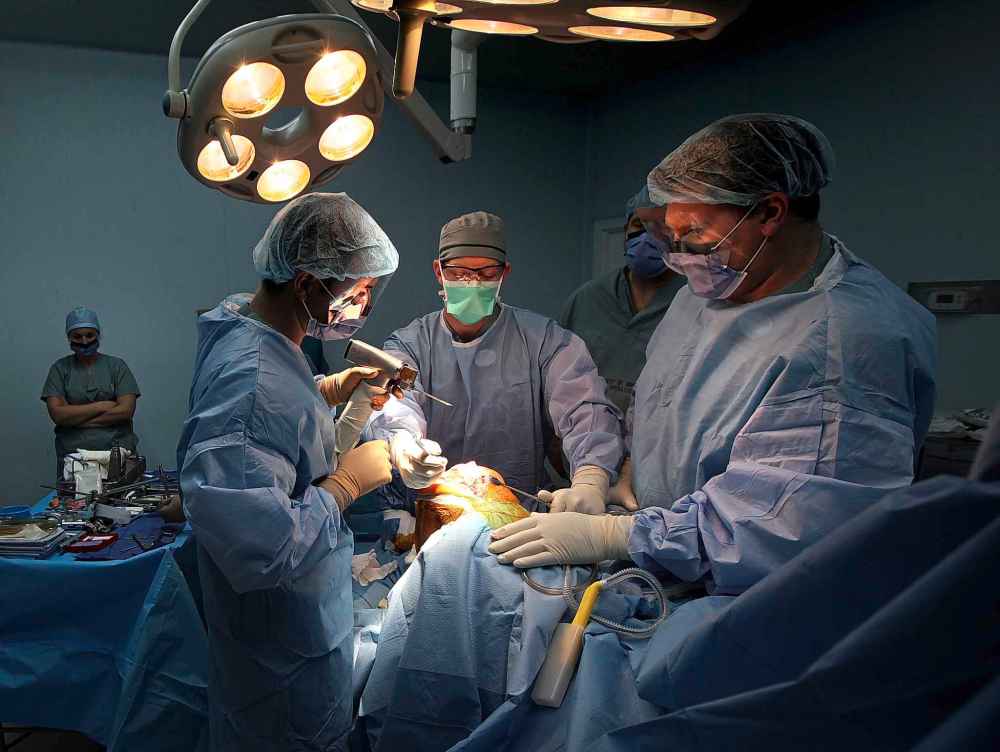It started out as a protest against a proposed change in tax rules. It may end up as a much-needed debate over how to make meaningful improvement in health care.
The medical establishment in this country is still buzzing about the federal government’s proposed changes to capital gains tax thresholds. In short, the Liberals’ recently tabled federal budget increases the portion of the windfall from the sale of assets subject to the tax.
As it turns out, many physicians, who are, largely, paid on a fee-for-service basis, are incorporated as professional corporations. When it comes time to sell those corporations and associated assets — which some do when they retire — they will pay tax on a larger share (two-thirds) of the capital gain. That has made capital gains a new pillar in the ongoing debate over how to heal health care.

Phil Hossack / Free Press Files
The Canadian Medical Association says the federal government’s proposed changes to capital gains tax rules could discourage students from seeking a career in medicine, and experienced physicians from remaining in practice.
Canadian Medical Association president Dr. Kathleen Ross said in a statement this week that the new rules could discourage students from seeking a career in medicine, and experienced physicians from remaining in practice.
“These changes could jeopardize ongoing efforts across Canada to recruit and retain a high-quality health workforce,” Ross said in the statement.
Could this measure really drive people away from a career in medicine?
There is some evidence medical associations are exaggerating the impact to drive a much more important debate about how to provide better support to physicians.
Canada’s primary health-care system relies heavily on both its networks of hospitals and privately owned and operated medical practices, through which physicians provide care and earn income on a fee-for-service basis. It’s not a perfect system, but it has functioned reasonably well.
However, during the COVID-19 pandemic, the entire business model on which private medical clinics are based came completely off the rails.
As public health restrictions drove people to shelter at home, it also discouraged them from seeking primary health care. The precipitous drop in patient volume eviscerated the financial foundation of many medical practices; you can’t charge a fee when patients don’t visit for your service.
Initially, most provinces resisted the call for financial support to keep clinics afloat. Eventually, they did respond to help physicians by approving fees for a new range of virtual health services, but many of those innovations came too late for some. In most cities, clinics that had operated for decades were shuttered and various practices consolidated.
More recently, provinces such as Manitoba have introduced new contracts to support family medical practices, reducing the paperwork and increasing fees for services provided to age groups with more acute medical needs (children under 16 and adults over 50), patients with chronic health conditions and those suffering with mental-health conditions or addictions.
However, even as improvements such as these slowly take effect, there continues to be a crisis in attracting younger Canadians to pursue medical careers, particularly family medicine, where physicians make considerably less than those who opt to practise in speciality areas.
The Canadian Resident Matching Service, the organization that connects medical-school graduates with residencies, reported last year that more than 100 family medicine positions went unfilled, the largest number of vacancies in more than a decade.
Medical schools and associations fear that collateral issues, including the capital gains tax rates, could further discourage graduates from seeking careers in family medicine, where the pay is lower and the overhead is higher.
It seems quite likely that if provincial medical associations, schools and provincial governments could make more progress in addressing the threats that are undermining the viability of family medicine practices, issues such as capital gains taxes would not attract as much attention.
Unfortunately, the issue is proving to be low-hanging fruit for the medical establishment, which now finds itself at a watershed moment. It could use concern about the impact of capital gains on physicians to strengthen family medicine, or it could get drawn into an issue that, on its own, won’t provide much relief for most doctors.
In trying to decide how to manage the debate from this point on, the medical establishment should acknowledge that its case against the changes in capital gains tax is not altogether compelling.
Physicians and their allies complain that taxing a greater portion of capital gains will make retirement untenable. That argument seems pretty weak when you consider the average individual retirement income in Canada is about $35,000 a year, and of that total the average amount provided by a registered pension plan is about $10,000. And other than tax-free savings accounts, everyone in Canada pays taxes on retirement income.
It’s also important to note that through incorporation, physicians benefit from being able to claim certain living expenses, and some of the income earned from a professional corporation is taxed at small business rates, which are much lower than income tax rates.
All that said, it’s still likely that as a message to physicians and would-be physicians, the capital gains changes are poorly timed.
For the time being, Ottawa and the provinces need to focus less on capital gains, and on the more impactful, foundational issues that are threatening family medicine in this country.
After all, you can’t earn much revenue taxing the sale of medical corporations that go bankrupt.
dan.lett@winnipegfreepress.com

Dan Lett
Columnist
Born and raised in and around Toronto, Dan Lett came to Winnipeg in 1986, less than a year out of journalism school with a lifelong dream to be a newspaper reporter.